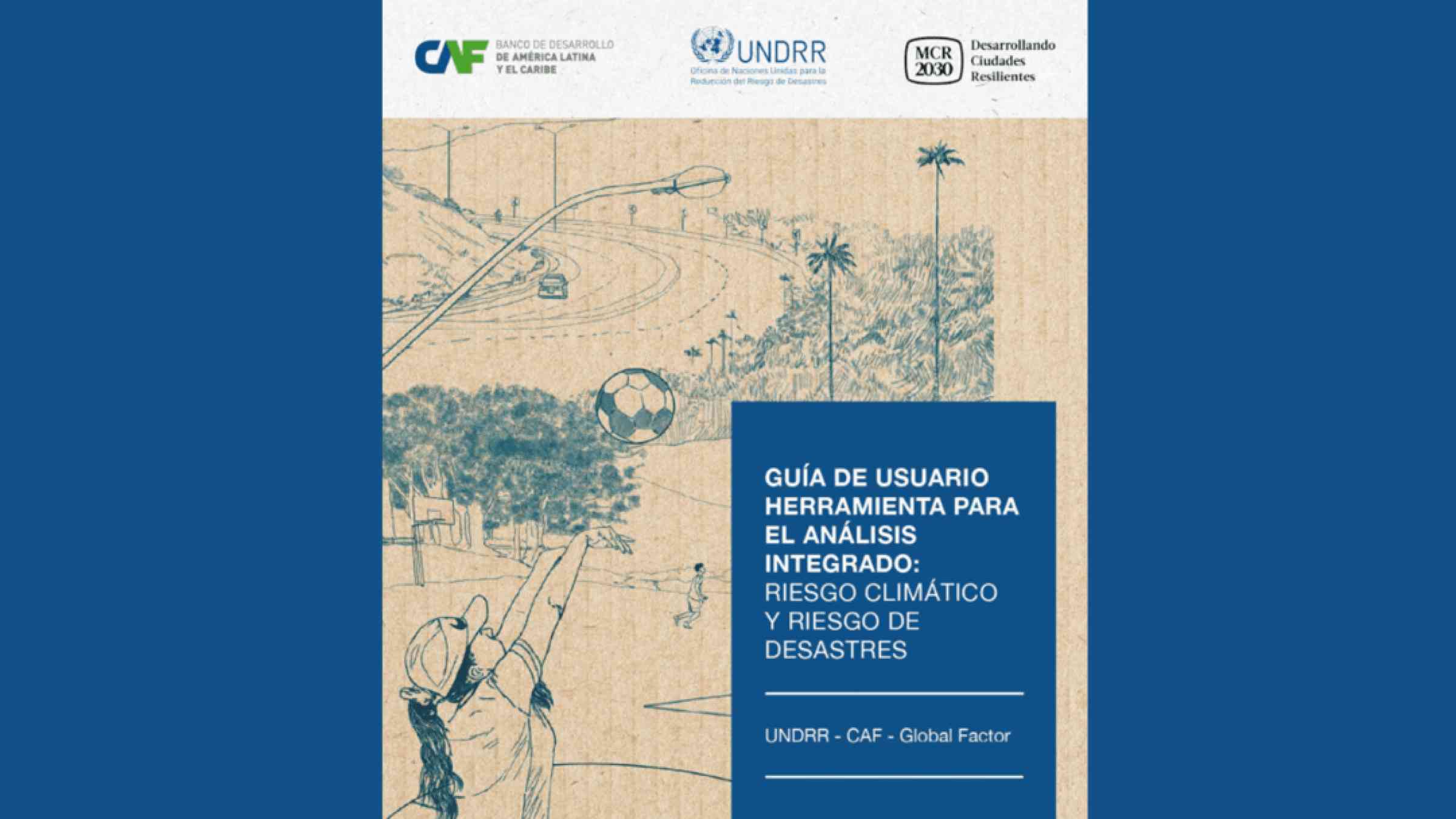CAF and UNDRR collaborate with new tools for comprehensive climate and disaster risk management in the Americas and Caribbean

The Development Bank of Latin America and the Caribbean (CAF) and the United Nations Office for Disaster Risk Reduction (UNDRR) signed a Memorandum of Collaboration in 2021 to promote concrete actions for disaster risk reduction and the implementation of the Sendai Framework for Disaster Risk Reduction (2015-2030).
In the context of this collaboration, a series of tools have been jointly developed for disaster risk reduction and increased resilience in the Americas and Caribbean region. These projects aim to strengthen resilience and enhance cooperation with regional and global partners, focusing on supporting local governments in Latin America and the Caribbean, with a special emphasis on the Making Cities Resilient 2030 (MCR2030) initiative. The following tools have been developed for the design and implementation of the Climate Resilience Addendum of the Scorecard (a self-assessment tool for city resilience capabilities):
- Design and implementation of an integrated methodology for disaster risk and climate risk analysis (caf.com):
Local government actions to build climate adaptation capacities are linked to strengthening territorial management and disaster risk reduction (DRR) instruments. Therefore, this tool aims to integrate "Adaptation and DRR" because both seek to address risks that could cause disasters, with an emphasis on managing climate threats.
This guide seeks to proactively address conceptual and methodological elements that support municipal authorities in designing and implementing joint actions to address both climate risks and disaster risk.
Using Panama City as a pilot, an "Integrated Analysis Tool for Disaster Risk and Climate Change" was developed to provide an analysis of risk under climate change considerations, encompassing various threats and dimensions of vulnerability in this urban environment.
Likewise, the city of Portoviejo (Ecuador) was used as a pilot for another risk analysis under climate change considerations, with different types of threats and dimensions of vulnerability in this urban environment.
The partnership between CAF and UNDRR, along with the development of these joint instruments, ultimately aims to pursue environmental, economic, and social resilience, as well as risk-informed sustainable development in Latin America and the Caribbean. This is to achieve significant progress towards a more resilient and secure region.

